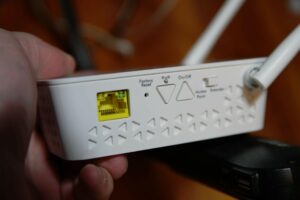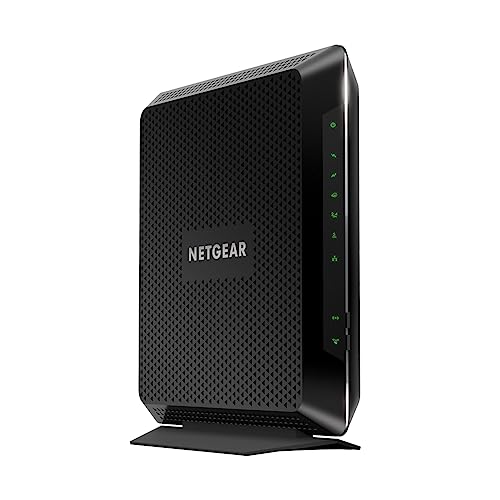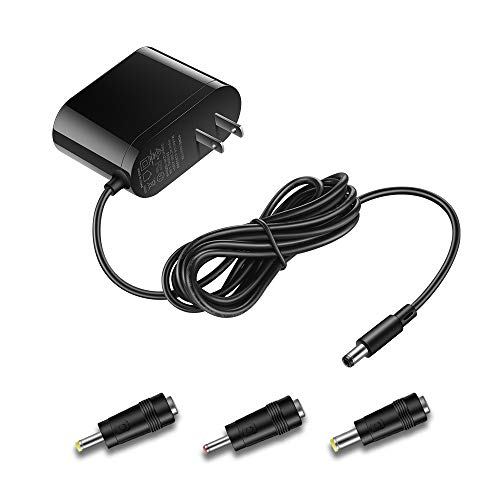Whether you’re at home or in your office cubicle at work, experiencing a lousy Wi-Fi connection is no fun. This is where devices like an access point and range extender come in.
If you are not familiar with these devices or are confused about choosing the right product that provides you with a stable connection and meets all your requirements, then you are in the right place. In this article, we will explore the benefits and setbacks of these devices and differentiate their function so that you can choose the one that fits your needs.
- Compatible with major cable internet providers including Xfinity, Spectrum, Cox and more. NOT compatible...
- [Compatibility] 12V Power Supply Adapter Compatible with Netgear, Linksys, Asus,Motorola, Motorola/Arris...
So without any further delay, let’s get into it!
What Is a Wi-Fi Access Point?
If you are looking for a stable and robust Wi-Fi connection for your home or office, then you should consider getting an access point for your network. The access point, or wireless access point, helps you regulate almost 60 connections simultaneously, as it engages the Wi-Fi devices to form a wireless cloud network across your facility.
This hardware is relatively easy to set up as you only require an ethernet connection that can be attached to a router to have an excellent wireless connection.
Benefits Of An Access Point
When you are thinking of getting yourself an access point to elevate your Wi-Fi connection, you should know all the advantages that come with this device:
- First off is the ability of this device to accommodate hundreds of users in a network, which makes it highly functional, especially for a large organization. Connecting various people and devices is not a problem when you have a Wi-Fi access point.
- You may find this similar to a router, but this device provides you with extreme functionality and efficient service with an extensive area coverage range. Moreover, you can install more than one access point to get a more prominent and sound Wi-Fi connection.
- In addition, a wireless access point easily handles increased traffic as it is compatible with a plethora of wireless devices and network protocols. The flexibility and efficiency of this device make it better than any router on the market.
- Power over Ethernet, simply known as PoE, is a combination of an ethernet and power wire that eliminates the need to install a separate outlet for the access point.
- The truth is, managing loads of users and devices in a single network can create a mess and even harm the speed as well as the safety of the network. This device’s ACL or Captive Portal and Access Control List eliminates these risks with its high-end technology.
- These Wi-Fi access points come pre-installed with a clustering feature, which allows better monitoring and secures the network along with the connected device. Moreover, this element enables you to keep track of all the access points as a single entity rather than as separate setups.
What are the Disadvantages Of Getting Access Points?
Although installing access points is beneficial in numerous ways, there can be certain setbacks that you should know about before purchasing one of these devices. These are a few things that you should consider:
- The total cost of setting up various access points can be an obstacle, especially if you need a large number of devices to support a network. So to save the extra bucks, many people go for a more affordable but less efficient option; however, you can always go for the better-performing device.
- Another setback of getting a Wi-Fi access point can be the additional components needed for setup. A wireless access point requires hardware such as an ethernet hub or power cables to function, which adds on more cost and can also create a lot of hassle. Moreover, most wireless networks are less reliable than wired connections.
What Is a Range Extender?

Whether you are watching a movie while lying on your couch or getting some last-minute work done before sleeping, you can notice how the Wi-Fi network varies from place to place. This is because the Wi-Fi connection can be surprisingly low in certain spots, and this is where the range extender comes in.
A range extender, also known as the wireless repeater, is a device that connects to your existing Wi-Fi router and establishes a second network that you can connect to. Then, a different wireless channel is used to rebroadcast the network for a better experience.
Benefits Of Range Extender
Range extenders can also be an alternative to wireless access points, but this is not valid because extenders improve coverage. Still, an access point creates a network for a solid Wi-Fi connection. The following are some of the benefits of range extenders:
- If you want to enhance your overall Wi-Fi experience without breaking the bank, range extenders are perfect for you. This is primarily used in homes as it is suitable for short-range networks. The device’s low cost and high performance make it a staple for any home network.
- The easy setup of this device is another aspect to consider as it saves you the headache of figuring out numerous wires, as well as needing professional help. All you need to do is plug it in, and you are good to go.
- The main feature of these extenders is their ability to enhance Wi-Fi connectivity to give you better coverage. Although the Wi-Fi connection may not be as robust as with an access point, it is sufficient for a small area like your home.
What Are the Disadvantages Of a Range Extender?
Range extenders are a great option for your home network or another small area; however, they can also pose some drawbacks. For you to have a practical insight, here are some of the disadvantages of a range extender:
- One of the most critical factors you need to know while getting a range extender is that it only provides limited stability and coverage to your network. Even though it boosts the signal, it doesn’t make your connection as strong as an access point does.
- A range extender can expose your network to several wireless interferences. These intrusive networks can slow down the devices connected with the extender and even slow down your Wi-Fi signal.
- The new network created by the range extender can be extremely vulnerable to cyber-attacks. The protection of the new network cannot be ensured, which can lead to system hacking and also deteriorate the connection’s overall quality.
Differences Between Wi-Fi Access Point and Range Extender
Now that you know the fundamentals of both access points and range extenders with all the benefits as well as disadvantages these devices can bring to your network, we can move on to point out the distinctions between the two:
| Wi-Fi Access Point | Range Extender |
| When you are looking to enhance the Wi-Fi connection in a large organization like an office or a business, the access point is the one for you. | A range extender is perfect for your home or a small office as this device works amazingly well for cozy spaces at half the price. |
| The access point connects all the Wi-Fi-enabled devices in a wired network, and it acts as a central hub responsible for the connected gadgets’ functioning and performance. | These devices expand your Wi-Fi coverage area by creating a second network. This ensures an even connection throughout the coverage area with great functionality. |
| A wireless access point provides a stable Wi-Fi connection that beats all. In addition, its expandable and extensive coverage is more reliable, especially when the network is busy. | These extenders boost your Wi-Fi connection, but this is limited to only half of their capacity. |
| The device and network can be expensive to set up and maintain. It is better to go for this when you are looking to install it in a vast area. | This is an incredible option for an individual as it is cost-effective, easy to set up, and saves all the hassle as well as money, while delivering the required Wi-Fi quality. |
Access Point vs. Range Extender – Which Is Better For Business?
As you already know, range extenders are helpful and effective in a household as they can support only a limited number of gadgets simultaneously. This is mainly because extenders can only improve the range of your Wi-Fi, but not its bandwidth. Also, they can usually support up to 20 devices, and the connection can deteriorate if there are too many engaging at the same time.
On the contrary, an access point can efficiently handle up to 60 connections without deteriorating the network quality. So, no matter if you’re switching your network or place, the connection stays strong and works effortlessly. Moreover, you won’t experience any interruptions while on the go, making it perfect for a business facility or big offices.
The Verdict
All in all, we can see that Wi-Fi access points are more suitable for offices while extenders are appropriate for your home Wi-Fi system. Both of these devices boost your Wi-Fi connection, although the access points are the ones that make your Wi-Fi reach its absolute capacity to provide an excellent network connection.
So you should go right ahead and choose any of these devices depending on your budget and needs. Further, don’t forget to consider all the pros and cons of the devices. With that being said, we hope you had a great time reading and found this article beneficial!





